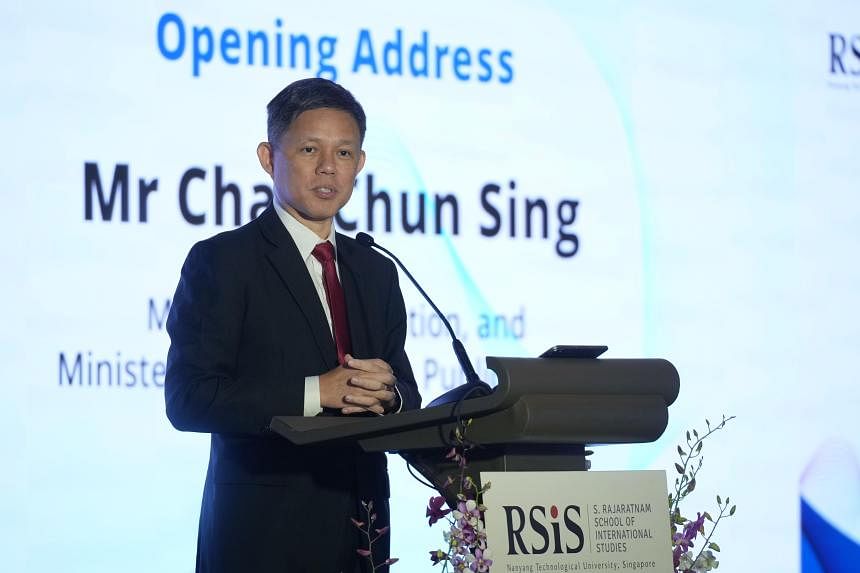SINGAPORE – Countries need to continue to stay interconnected, and to resist populism on the domestic front that will further fragment the global economy and diminish collective security, said Minister for Education Chan Chun Sing.
Mr Chan, who is also Minister-in-charge of the Public Service, noted that global resilience in supply chains and technological progress are better achieved through interdependence, and countries need domestic cohesion and confidence for the world to achieve international cooperation, instead of retreating behind populism and isolationism.
To do so, countries need to be honest with themselves about where the problem lies and realise that “all of us have (the) agency and responsibility to shape the outcomes we desire”, he added at the opening of the 15th Asia-Pacific Programme for Senior National Security Officers (APPSNO) on April 15.
APPSNO, organised by the Centre of Excellence for National Security at the S. Rajaratnam School of International Studies, brings together senior national security policymakers from the Asia-Pacific region and beyond to discuss emergent issues, trends and approaches to managing national security.
The 2024 edition is being held at the Parkroyal Collection Marina Bay from April 15 to 19.
Mr Chan also warned in his speech that a more fragmented world will lead to slower economic growth, as economic systems can only be optimised at a local level and not globally.
He added that as countries have leaned towards “friend-shoring”, “near-shoring” or “on-shoring” of supply chains – in a bid to achieve resilience for those supply chains – “not only has macro-efficiency declined, it is also uncertain whether true resilience has been achieved”.
Friend-shoring is the process of manufacturing goods in or sourcing from countries that are geopolitical allies. Near-shoring uses locations geographically close by. On-shoring is having the entire supply chain and manufacturing located in one’s own country.
Mr Chan explained that these measures may end up providing only an illusion of resilience as a country ends up putting more or all eggs in one basket. This is even if it considers the basket its own, and particularly if the measures were carried out in an economically unsustainable way.
Everyone will end up poorer for it, he added.
This fragmentation will likely also lead to technological progress slowing down and create a more complex and challenging environment for worldwide integration, possibly resulting in even slower economic growth. This could fuel domestic insecurities and inequalities, further intensifying inclinations towards protectionism.
A classic prisoner’s dilemma
There will also be security implications for the world if the fragmenting of the world order continues, Mr Chan added.
“In times of heightened uncertainties and a deficit in confidence – both domestic and mutual – the desire to pursue individual security can paradoxically compound collective insecurity,” he said.
He noted that this scenario has played out between major and medium powers across the world, when the pursuit of individual security accentuates the insecurity of other parties.
He cited this as an example of the classic prisoner’s dilemma, which refers to a situation where two people acting selfishly will ultimately result in a suboptimal choice for both.
This can be seen in the Russian invasion of Ukraine, the situation in the Middle East, and the potential flashpoints in the South China Sea and East China Sea.
Highlighting that the only way out of the dilemma is through mutual trust and collective action, Mr Chan urged his audience to stay connected to truly understand the fears, concerns and aspirations of other parties, even in the toughest of times.
“Tempting as it is, we must never give in to the tendencies towards increased protectionism and isolationism.”


